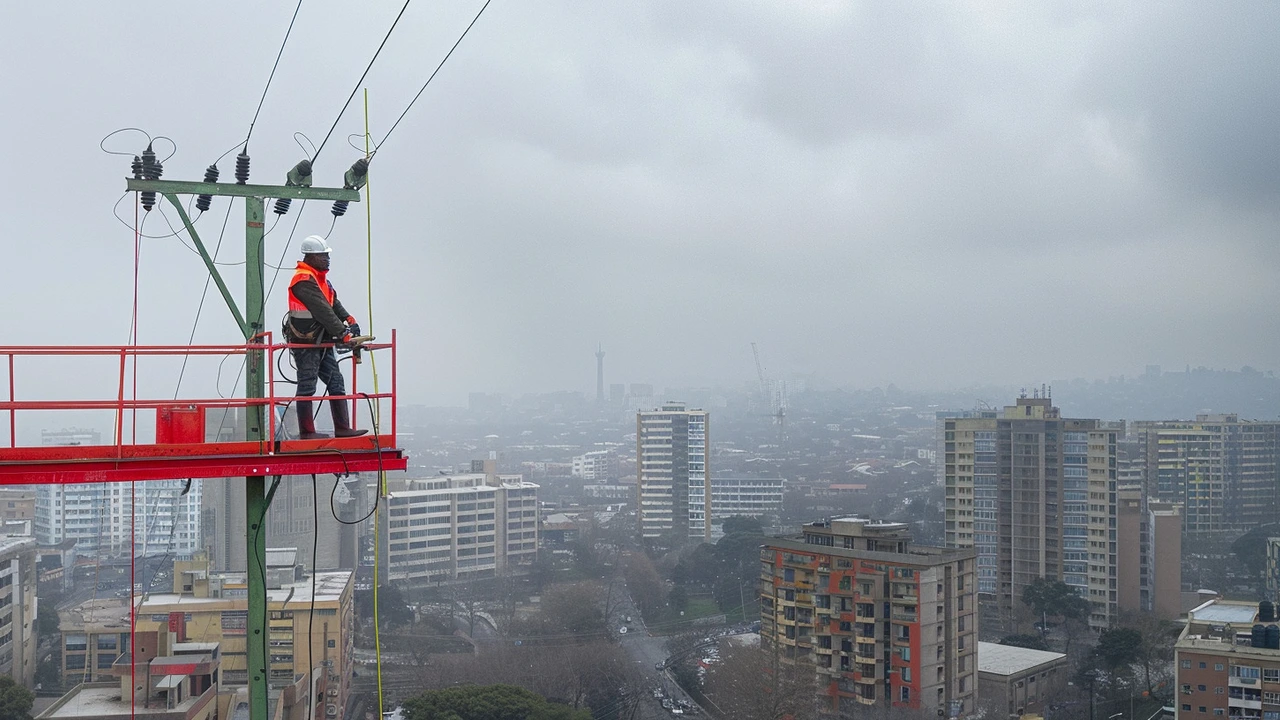Johannesburg Load Reduction Made Simple
If you’re tired of sudden power cuts, you’re not alone. Johannesburg’s load shedding hits everyone – homes, offices, schools – and it costs us time and money. The good news is that a few everyday changes can lower the demand on the grid and keep the lights on longer.
Everyday Home Tips
First off, look at what you’re plugging in. Old appliances gulp electricity; swapping them for energy‑efficient models makes an instant difference. If a new fridge or washing machine is out of reach, try unplugging devices when they’re not in use – chargers, TV standbys, and gaming consoles waste power even while idle.
Lighting is another quick win. Replace incandescent bulbs with LEDs; they use up to 80% less energy and last years longer. Even a simple habit like turning off lights when you leave a room can shave off kilowatts from the city’s load.
Temperature control often goes overlooked. In summer, set your air‑conditioner a few degrees higher and use fans to circulate cool air. During winter, lower the thermostat a notch and wear an extra sweater. Small adjustments add up across thousands of households.
Smart timers can automate savings. Program lights, heaters, or pumps to turn off during peak load hours (usually early evening). Many modern devices let you set schedules right from your phone, so you never have to remember.
Community & Business Strategies
Load reduction isn’t just an individual game – neighborhoods can pool ideas. Organise a “power‑saving week” where everyone tracks their usage and shares results. Friendly competition often sparks creative solutions like community solar panels or shared battery storage.
Businesses have a big impact, too. Encourage staff to power down computers at the end of each day and use energy‑efficient lighting in offices. If you run a shop, consider motion sensors that dim lights when no customers are around.
Local councils sometimes offer rebates for installing solar panels or upgrading insulation. Check your area’s incentives – they can offset upfront costs and give you a tax break later.
Even schools can teach load‑reduction habits. Simple projects like measuring classroom electricity use raise awareness and empower students to suggest changes that stick.
The government’s role is crucial as well. Keep an eye on announcements about upcoming load‑shedding schedules, and follow advice from Eskom on peak‑hour reductions. When authorities ask residents to cut back for a few hours, complying helps stabilize the whole grid.
Remember, every kilowatt saved by one home or business eases pressure on the national supply. Over time, those small savings can delay load shedding and lower electricity bills across Johannesburg.
So next time you hear about another stage of load shedding, ask yourself: what can I switch off right now? The answer is usually simple, cheap, and effective. Start with one change today, then add another tomorrow – before long you’ll notice a smoother power supply and a lighter wallet.
Gauteng Power Crisis: Johannesburg and Tshwane Residents Suffer Amid Eskom's Stability Claims
Gauteng residents, especially in Johannesburg and Tshwane, are facing power cuts despite Eskom celebrating two months of stability without load shedding. Johannesburg has implemented aggressive load reduction measures to tackle the severe strain on electricity due to high demand. Tshwane follows similar steps to mitigate power issues in areas like Soshanguve.
read more